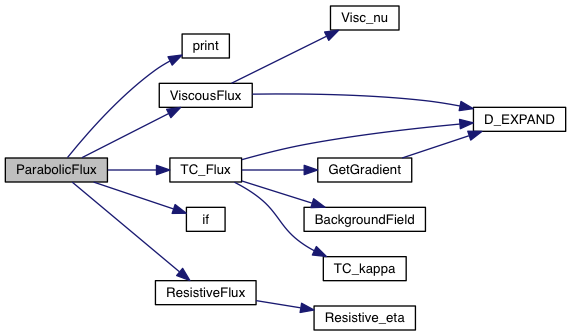|
PLUTO
|
|
PLUTO
|
Compute diffusion fluxes for explicit time stepping. More...
#include "pluto.h"
Go to the source code of this file.
Functions | |
| void | ParabolicFlux (Data_Arr V, Data_Arr J, double ***T, const State_1D *state, double **dcoeff, int beg, int end, Grid *grid) |
Compute diffusion fluxes for explicit time stepping.
Compute parabolic fluxes and corresponding source terms for explicit time stepping only and add them to upwind fluxes. For STS and RKC integration see the ParabolicRHS() function. Note that source terms are only included for viscous terms, since resistivity and thermal conduction do not need any.
Definition in file parabolic_flux.c.
| void ParabolicFlux | ( | Data_Arr | V, |
| Data_Arr | J, | ||
| double *** | T, | ||
| const State_1D * | state, | ||
| double ** | dcoeff, | ||
| int | beg, | ||
| int | end, | ||
| Grid * | grid | ||
| ) |
Add the diffusion fluxes to the upwind fluxes for explicit time integration.
| [in] | V | pointer to the 3D array of cell-centered primitive variables |
| [in,out] | state | pointer to a State_1D structure |
| [out] | dcoeff | the diffusion coefficients 1D array |
| [in] | beg | initial index of computation |
| [in] | end | final index of computation |
| [in] | grid | pointer to an array of Grid structures |
Definition at line 34 of file parabolic_flux.c.

